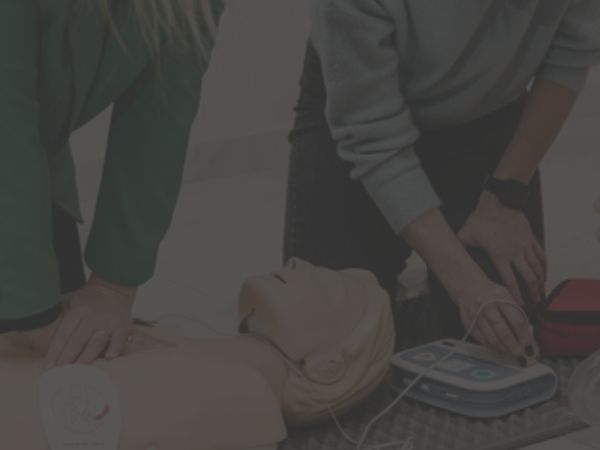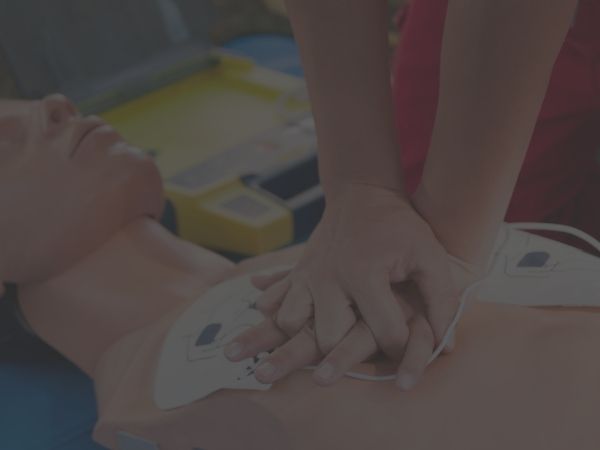Your cart is currently empty!
19 Clever Ways Nurses Find Time to Stay Healthy?
If there’s one thing nurses have a whole lot less of right now, it’s time. As patients come pouring in, increased COVID-19 precautions mean taking extra time to do everything. Nurses have to be intentional about staying healthy to maintain their health as they work long hours to further public health.
Nurses worldwide are applying several strategies to achieve this in the hospital, at home, in the car, in the restroom, and anywhere they find a second to re-focus on their own health and well-being.
Becker’s Hospital Review spoke with nurses across the US. Here are the strategies nurses are saying work along with the science that shows why they’re so effective at saving time while promoting your best health.
1. Nurses Are Staying Present-Focused
When you’re not focused on the present, time can fly by, so it actually feels like you have less time to exercise, eat healthily, or take some me-time. Additionally, not staying present leads to more mistakes and knee jerk responses to stressful events like a co-worker saying something the wrong way or making an otherwise harmless mistake.
How Mindfulness Impacts Emotional-Mental Health
A study reported in by Harvard.edu showed that compared to the control group after just eight weeks of practicing mindfulness, the amygdala has less intense responses to emotional stimuli, as visible on MRI. That means the mindfulness group could better adapt to stressful events and manage their emotions around it to avoid becoming overwhelmed.
The CDC.gov is one of many organizations reminding people during the pandemic that unbridled stress destroys immune function. You’re more likely to get sick. So if you want to stay as healthy as possible, you will take steps to manage stress. And that starts with being present-focused.
2. Using the Power of Positive Affirmation to Stay Healthy
Another strategy that you may be hearing from nurses is the power of positive affirmations. Positive affirmations are evidence-based. You’re basically applying the science behind cognitive-behavioral therapy (CBT) in your life.
According to a study review published on nih.gov, seven out of eight studies show CBT’s effectiveness over other similar treatments for various thinking and lifestyle conditions, including general anxiety and depression.
Create affirmations that are meaningful to you and repeat them regularly throughout your day. Make them your go-to when negative thinking creeps in.
Sample Affirmations
“I have more than enough time to stay healthy and well.”
“I feel well and energized today.”
“I do good things for my body.”
If you find yourself thinking things like, “I’m going to get COVID and get very sick”, replace it with something like, “I always take care of myself and follow COVID safety practices.” This not only makes you feel better. When you apply CBT principles, you’re more likely to make other healthy choices because of your positive outlook.
3. Intentionally Consuming Inspirational Materials
Sit somewhere quiet and take three to five minutes to consume something inspirational like a passage from a positive-toned book, a short guided meditation, or a podcast. Focusing on something very positive, even for a few minutes, can slow your breathing and help you reset your thinking so that you mentally and physically feel better and more focused.
4. Scheduling Time to Speak with a Professional
If you’re feeling particularly overwhelmed, having someone to talk to can really help. Pressed for time? Even one hour a week with a therapist can make a huge difference. And everything is online now. So consider scheduling a Zoom call, regular call, or even a texting session with a therapist to talk about your week.
Some medical employers even cover this under their employee benefits package.
5. Doing Deep Breathing Exercises
 You release cortisol into the body when you’re stressed. Cortisol raises blood pressure, increases cravings for unhealthy foods, and makes you feel more stressed. It even impacts your ability to think straight. According to Scientific American, deep breathing helps the body reduce cortisol levels while activating hormones that help you feel relaxed and energized.
You release cortisol into the body when you’re stressed. Cortisol raises blood pressure, increases cravings for unhealthy foods, and makes you feel more stressed. It even impacts your ability to think straight. According to Scientific American, deep breathing helps the body reduce cortisol levels while activating hormones that help you feel relaxed and energized.
6. Choosing Substance Alternatives to Wind Down
As nurses, it’s often hard to wind down after a long day. The stress of the shift can linger and negatively impact sleep, so people often turn to substances like alcohol or sleeping pills, leading to dependence, health problems, and groggy mornings that sap your energy and time you might spend doing healthy things for yourself.
Substance Alternatives to Help You Sleep
Choosing other methods like getting exercise a few hours before bed, taking a bedtime shower, putting the devices away 30 minutes before bedtime, or writing in a gratefulness journal are effective alternatives to settle the mind. Hence, you get better sleep and feel like you can get more out of your day.
7. Reflecting on Your Feelings
Bottling up your feelings when you’re busy to stay focused may work for a short time. But it can backfire on you, increasing unhealthy stress, stress eating, and mental exhaustion. Today, nurses are taking a little time to process their feelings to make sure they’re attending to self-care and their own needs to better take care of patients in the hospital setting and loved ones who may also be struggling with overwhelming emotions.
Give yourself some room to feel what you’re feeling. Do you feel anger, resentment, fear, grief? Those are all normal human emotions meant to be felt and processed, not buried.
8. Bringing Lunch and Snacks
As the saying goes, “if you fail to plan, you plan to fail”. The busier your day is, the easier it becomes to turn to vending machines, snacks, or fast food delivery to get your nourishment. You simply have fewer options at that point. But you do have options when you plan. It’s easier to eat healthfully and avoid nutritious food.
Pack your lunch with healthy and filling snacks like walnuts, almonds, or pumpkin seeds. It takes fewer than two minutes to wash and slice up some carrots, celery, zucchini, and broccoli for day-time snacking.
9. Prioritize a Good Night’s Sleep
When time is tight, it may feel impossible to get a full night’s sleep, especially if you work multiple and varied shifts at the hospital. But focusing on improving this one thing can significantly improve your energy levels and how efficiently you function to stay healthy.
According to MayoClinic.org., studies show that sleep deprivation is closely linked to poor immune system function and more sick days. Lack of sleep also impacts your ability to recover from sickness. During sleep, you produce more cytokines, which not only promote more restful sleep. They also help you fight infections and reduce inflammation.
10. Set Aside Dedicated Time for Family
Spending time with those you love can reduce stress and boost immunity. When you’re in a place where you feel safe and comfortable, you activate your parasympathetic nervous system, the part of your autonomic nervous system that promotes happiness and general wellbeing.
According to Science Direct, it serves the additional function of reducing inflammation by increasing immune adaptability, which helps your body respond to both emotional stress and physical pathogens in a more measured, balanced, and effective way.
11. Increase Your Confidence During Emergencies
When you feel adequately prepared to respond to an emergency, you can act more quickly to save lives. But being confident during emergencies has the added benefit of reducing your stress level. One fundamental way to boost confidence is by ensuring you’re current with ILCOR-approved best practices for cardiac emergencies.
Covid-19 algorithms for cardiac events provide specific guidance to balance a nurse’s safety with patient welfare.
They’re available in:
- Adult Basic Life Support Covid-19 Algorithm
- Advanced Cardiac Life Support Covid-19 Algorithm
- Pediatric Cardiac Arrest Covid-19 Algorithm
You also have apps like the MediCode app, which allow you to conveniently access algorithms on your phone during an emergency.
12. Put Your Own Safety First
The more normal a risk becomes, the more people become lax when it comes to safety measures. But it’s vital to continue to stay vigilant to protect yourself by mindfully following medical center safety protocols and taking extra steps as needed to ensure your safety as a nurse first.
Protecting Yourself is Protecting National Health
The World Health Organization WHO.int recently released a statement reiterating that when nations protect their medical workers, they are protecting national health. As a nurse, you are in a position to save many patients. If you get sick, you’re less able to care for others.
So altruism, while admirable, is not what a world battling a pandemic needs. They need medical personnel who value their own health and take steps, as available, to stay as healthy as possible.
13. Pre-preparing Easy Meals
 Despite your desire to stay healthy, especially during a pandemic, double shifts and varied hours often mean fewer regular meals at home as well. Many nurses are applying strategies like pre-cooking a week’s worth of dry beans, lentils, quinoa, wild rice, and other healthy carbs that take some time to prepare.
Despite your desire to stay healthy, especially during a pandemic, double shifts and varied hours often mean fewer regular meals at home as well. Many nurses are applying strategies like pre-cooking a week’s worth of dry beans, lentils, quinoa, wild rice, and other healthy carbs that take some time to prepare.
Then when it’s time for dinner, you can just pull a portion out, reheat it, add some steamed veggies and a little meat if you choose, and you have a healthy, delicious meal that can be ready in five minutes.
And the great thing about pre-cooking the above kitchen staples is that you can serve them with so many flavors, so there’s no need to bore your pallet by feeling like you’re eating the same thing every night of the week.
Here are seven distinct flavors for seven nights a week.
-
- Taco seasoning
- Cajun seasoning
- Garlic and onion
- Cilantro or basil
- Curry
- Fennel and chives
- Hot sauce or cayenne
14. Getting Lots of Fresh Air
When you get fresh air, especially around trees and bushes, you’re getting your Oxygen firsthand, straight from the plant that produces it. A study from the US Department of Agriculture and the Forest Service found that spending just 15-30 minutes in nature could significantly improve mental and physical health.
Additionally, a growing body of evidence suggests that spending more time outside in the fresh air and allowing more of that fresh air into the home and workspace could reduce your risk of contracting Covid-19. The Who.int recommends opening the windows for a short time during the day to allow cross-circulation and removal of “infectious clouds” produced by sick people when they cough, sneeze and even breathe.
15. Looking for Opportunities to Laugh
Laughing, even fake laughing activates the parasympathetic nervous system and boosts immune function. Find opportunities to laugh every day, even when you don’t feel like it. Following these 10 fun Instagram accounts for nurses is a great way to get your daily dose.
16. Cultivate Healthy Work Relationships
Spending too much time around negative people is bad for your health, so not only do you want to cultivate a more positive outlook in yourself. Work to bring it out in your co-workers. And if there’s that one person who brings everyone down, avoid spending any more time with that person than you have to so you can prevent getting sucked into their negativity trap.
17. Setting Realistic Goals for Yourself
You may not be ready to tackle all of these at once. But just like you would with a patient, encourage yourself to set a realistic healthy goal, commit to it, do it without fail for a time, and turn it into a habit. Then tackle another one.
Don’t be too hard on yourself. Every day is a new day to do better and be healthier. Past mistakes should never be an excuse to give up trying to stay healthy.
18. Create a Stretch Goal
While it’s important to set realistic goals, you also want to keep your eye on what you ultimately want to achieve with your health. If you have a chronic condition, it may improve how you manage it to reduce medication needs. You might want to run a marathon in two years.
Set a big goal to keep you focused on the little ones.
19. Make Getting Exercise a Priority
When you work out regularly, you have more energy and feel better, so it actually feels like you have more hours in the day. Even if you walk a lot on the hospital floor, dedicate some time to build strength, endurance, and flexibility for better health. You’ll reduce your work-related injury risk and feel better as you tackle your day.
How do you stay healthy? Share with us.











Leave a Reply